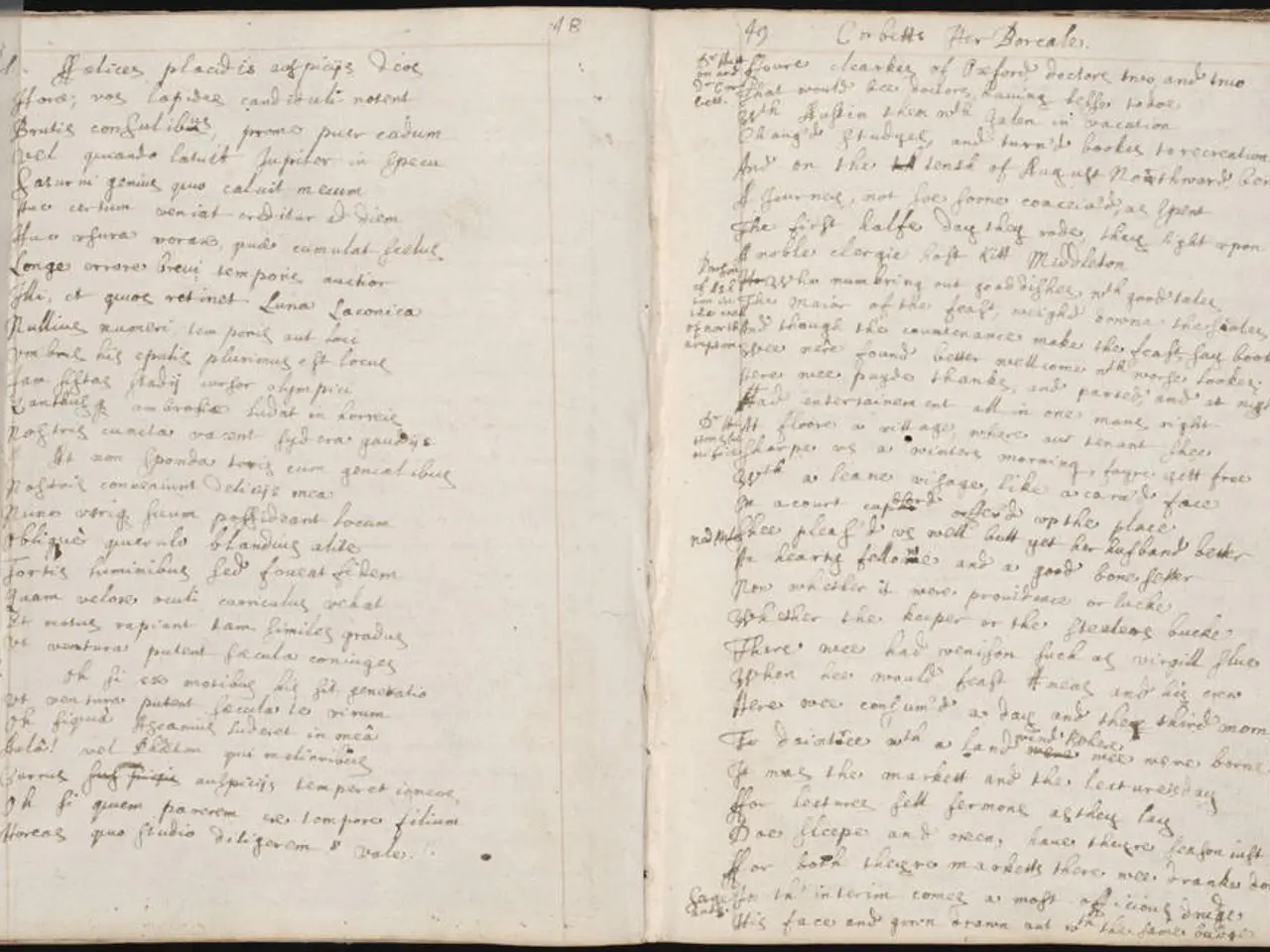Tragedy 'Oedipus Rex' Penned by Greek Playwright Sophocles: Overview, Themes, and Key Characters
==============================================================
In the realm of ancient Greek literature, two plays stand out as enduring masterpieces: Oedipus Rex and Antigone, both penned by the renowned playwright Sophocles. These tragedies, written over 2,500 years ago, continue to explore themes that transcend their time.
Oedipus Rex, a tragedy of unparalleled scope, is a poignant exploration of fate, free will, justice, and divine law. It is considered a tragedy for all times, delving into universal and timeless human experiences such as the search for truth, the limits of human understanding, and the suffering caused by fate. The play's structure, dramatic irony, and emotional depth draw audiences into Oedipus's tragic downfall, evoking fear and pity as outlined by Aristotle's principles of tragedy.
In Oedipus Rex, themes such as the inevitability of fate, human ignorance, and the tragic consequences of human actions are central. The play's use of dramatic irony allows the audience to foresee Oedipus's demise, intensifying its impact.
Antigone, Sophocles' other celebrated tragedy, focuses on a different yet equally important theme: the conflict between individual conscience and state law. The play revolves around the titular character's defiance of King Creon's decree, choosing instead to honour her family's dead according to the unwritten laws of family loyalty and the gods. This conflict between the laws of the state and the unwritten laws of family loyalty and the gods results in a tragic series of events.
Both Oedipus Rex and Antigone are tragedies in the genre of poetry, their verses echoing with the weight of timeless themes. Their psychological complexity and exploration of fundamental aspects of the human condition, such as fate, human nature, and the struggle between individual morality and societal expectations, continue to resonate across cultures and eras.
In conclusion, Sophocles' plays Oedipus Rex and Antigone remain quintessential tragedies due to their masterful combination of intellectual complexity, emotional power, and profound themes that continue to resonate across time and cultures. Their enduring relevance is a testament to the timeless nature of the human condition and the power of great literature to reflect and shape our understanding of it.
[1] Graves, Robert, ed. The Greek Myths. Pantheon Books, 1955. [2] Foley, Helene P. Introducing the Ancient Greek Stage. Cambridge University Press, 1993. [3] Hall, Edith. The Greek Theatre and Its Influence. Macmillan and Co., 1915. [4] Segal, Charles. Greek Tragedy: Forms of Tragic Experience. University of California Press, 1986. [5] Segal, Charles. "Oedipus Rex." In The Cambridge Companion to Greek Tragedy, edited by Simon Goldhill, 107-123. Cambridge University Press, 1997.
- The exploration of themes such as fate, human nature, and individual morality in plays like Oedipus Rex and Antigone demonstrates their significant role in the field of literature, particularly in education-and-self-development by challenging readers to analyze and understand the human condition.
- In addition to their cultural impact, the novels Oedipus Rex and Antigone, penned by Sophocles, offer an insightful analysis of characters' psychology, showcasing how their choices and actions lead to their own destruction, teaching lessons about lifestyle and personal responsibility.
- The thematic depth and dramatic structure found in plays like Oedipus Rex and Antigone contribute to their classification as literary works of art, which have transcended eras and remain relevant for literary scholars today.
- By delving into universal themes like the conflict between individual conscience and societal expectations, the plays Oedipus Rex and Antigone by Sophocles have proved to be invaluable resources for those studying the intricacies of plays, poems, and other literary works within the realm of literature and literary criticism.




